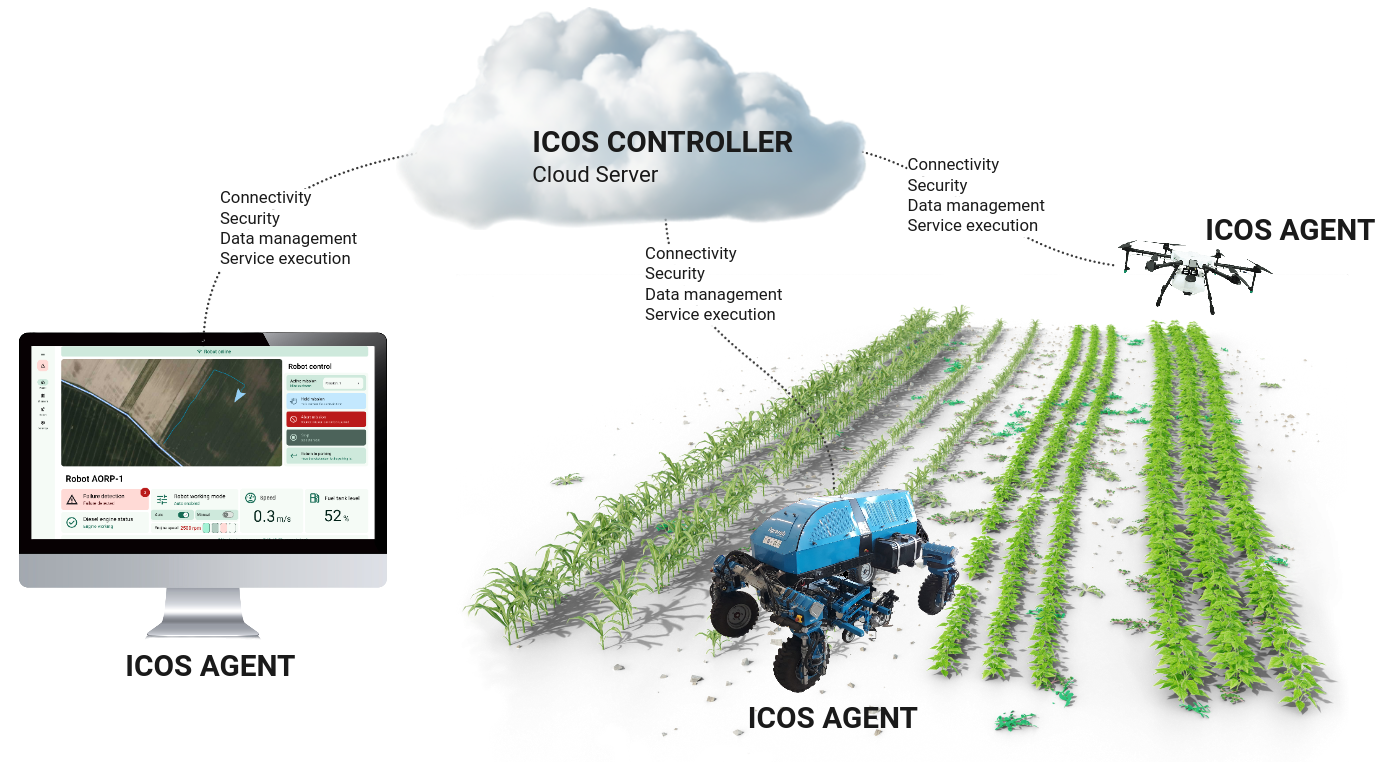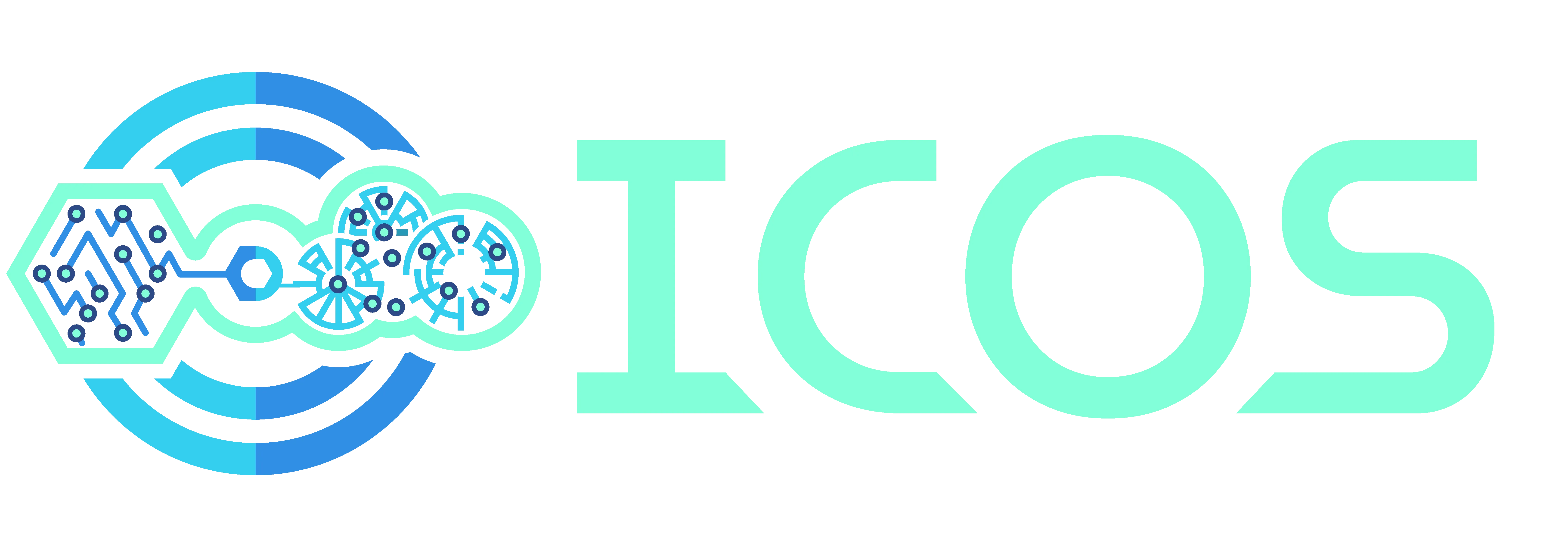The ICOS ecosystem in smart agriculture
In modern agriculture, the seamless flow of data from edge devices to cloud-based platforms is fundamental to maximizing the efficiency and effectiveness of robotic and technological interventions. Distributed processing, data transfer, connectivity, and security are integral components of this data-driven approach. At the edge of the agricultural system, sensors, drones, and robotic devices collect vast amounts of data on soil health, crop conditions, weather patterns, and more. These edge devices often operate in remote areas with limited connectivity, necessitating onboard processing capabilities to analyze data in real-time and make immediate decisions. Edge computing minimizes latency and bandwidth requirements by processing data locally, enabling rapid response to changing conditions without relying on constant communication with centralized servers. However local processes are limited by device computational power.
Once data is collected and preprocessed at the edge, it needs to be transferred to cloud-based platforms for further analysis, storage, and integration with other data sources. High-speed, reliable connectivity solutions, such as cellular networks or satellite communication, facilitate the transmission of data from remote agricultural sites to cloud servers.
In the cloud, agricultural data undergoes extensive analysis using advanced analytics, machine learning, and artificial intelligence algorithms. These tools extract valuable insights from raw data, identifying parameters that inform decision-making processes. For example, predictive analytics models can forecast crop yields, diseases, or optimal planting times based on historical data and current environmental conditions. The image below shows how information collected and processed at the edge (on the robot) is being sent to the cloud for further analysis and sent back to the edge as criteria for further operation of the robot.

Managing the comprehensive system of agricultural data flow from edge to cloud, including data transfer, distributed processing, and storage, poses a complex challenge that often falls beyond the expertise of agricultural software developers. To address this challenge, leveraging an infrastructure capable of supporting such an environment becomes essential.
ICOS (IoT2Cloud Operating System) serves as meta-operating system designed to manage and orchestrate this continuum seamlessly. ICOS streamlines the management of connectivity, security, monitoring, and data management, relieving application developers of the burden and complexity associated with these tasks.
Multiple edge devices can onboard ICOS Agents, effectively functioning as part of the ICOS ecosystem. These Agents operate under the supervision of an ICOS Controller, which oversees their activities and coordinates data flow and task execution between edge devices and cloud-based servers.
ICOS plays a vital role in modernizing agriculture by simplifying the management of complex IoT ecosystems, ensuring data security and integrity, and enabling the seamless flow of information from edge to cloud. By embracing such technologies, the agricultural industry can unlock new opportunities for innovation, efficiency, and sustainability in the ever-evolving field of smart farming.


This project has received funding from the European Union’s HORIZON research and innovation programme under grant agreement No 101070177.


